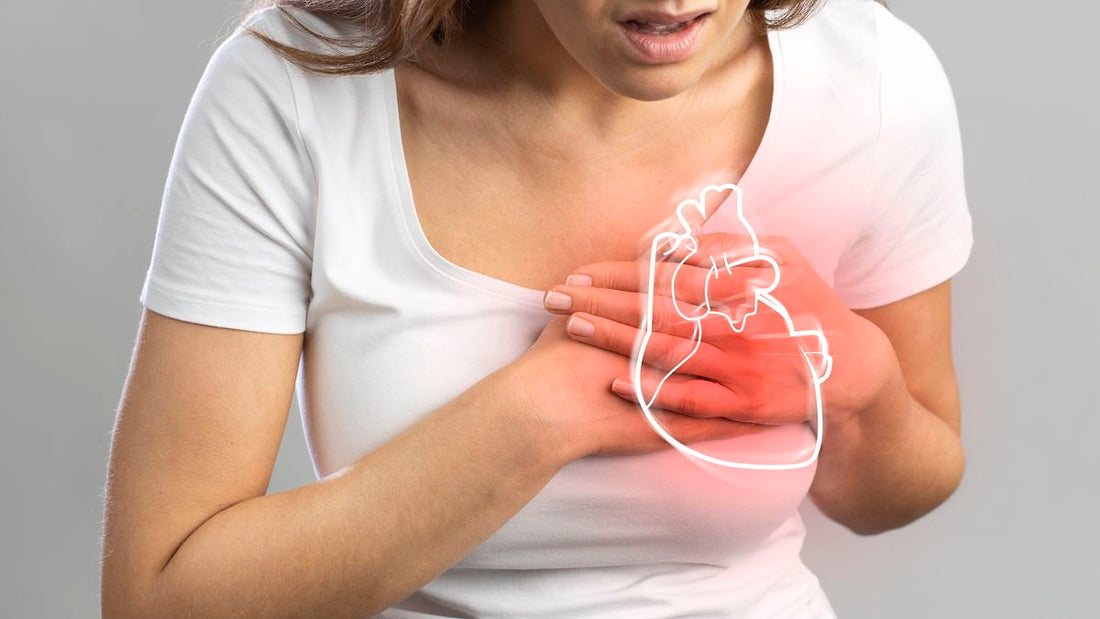
How Menopause Affects Cholesterol and Heart Health in Women
Share
We often hear about how cholesterol levels matter for heart health. But did you know that women's cholesterol changes dramatically during menopause?
A new review explains how menopause affects lipid metabolism — and why understanding these changes is key to protecting women's hearts.
Here’s a simple breakdown of what happens and what women can do about it.
What Happens During Menopause?
Menopause marks the end of a woman’s menstrual cycles and happens when the ovaries stop releasing eggs.
This leads to a big drop in estrogen levels — and estrogen plays an important role in keeping cholesterol and blood fats at healthy levels.
Without enough estrogen, the body’s metabolism changes:
- Total cholesterol goes up
- Bad cholesterol (LDL) rises sharply
- Good cholesterol (HDL) changes in ways that make it less protective
- Triglycerides, another type of fat, also increase
These changes together create a more dangerous profile for the arteries, raising the risk of heart attacks and strokes.
Why These Changes Matter
Before menopause, women usually have better cholesterol levels than men.
But after menopause, women’s cholesterol rises faster and often even surpasses men's.
This helps explain why women’s risk of heart disease shoots up after midlife.
In fact, heart disease becomes the number one killer of women after menopause — even more than breast cancer.
Understanding this shift can help women and their doctors take earlier steps to manage risks.
Is Early Menopause a Bigger Risk?
Yes.
Women who go through menopause before age 40 — known as early menopause — are at even higher risk of heart disease.
The earlier the loss of estrogen, the longer the body is exposed to unhealthy lipid levels, increasing cardiovascular risks over time.
Early menopause can happen naturally or due to surgery, cancer treatments, or other health issues.
Can Hormone Therapy Help?
Menopausal Hormone Therapy (MHT), often called hormone replacement therapy, can lower LDL cholesterol and improve some lipid levels.
But it’s not a one-size-fits-all solution.
Doctors no longer recommend MHT just to prevent heart disease because some large studies found risks, like blood clots and stroke, in older women who started hormones late.
However, starting MHT earlier, close to the time of menopause, may offer heart benefits for certain women.
It’s important to discuss the risks and benefits individually with a doctor.
Other Ways to Protect Heart Health After Menopause
Even without hormone therapy, there are powerful ways to protect your heart:
- Eat a healthy diet: Focus on fruits, vegetables, whole grains, and lean proteins. Limit saturated fats and processed foods.
- Stay active: Aim for at least 30 minutes of moderate exercise most days.
- Control blood pressure and blood sugar: Both can worsen with menopause if not monitored.
- Quit smoking: Smoking damages blood vessels and increases cholesterol problems.
- Get regular checkups: Monitor cholesterol, blood sugar, and blood pressure at least once a year.
Small daily habits can add up to major protection over time.
Final Thoughts
Menopause is a natural part of aging, but it brings important changes that affect heart health.
Understanding how cholesterol and fat metabolism shift after menopause can help women take early action to protect their hearts.
A healthy lifestyle, careful monitoring, and personalized discussions with healthcare providers can make a real difference in preventing heart disease in the years after menopause.
